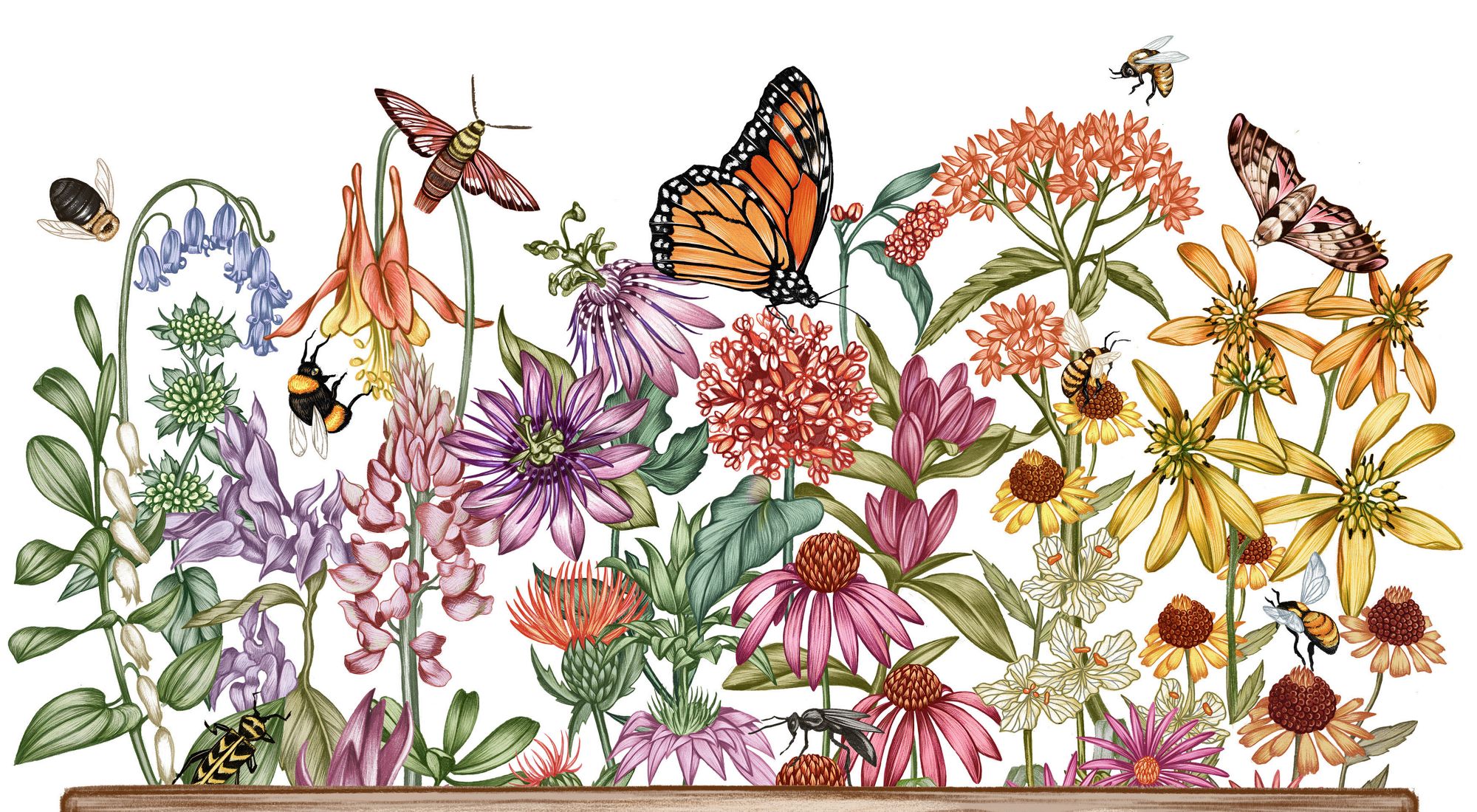| Pollinators such as honeybees produce special enzymes that detoxify defence chemicals produced by plants, new research shows.
Many plants produce alkaloids as protection against herbivores, and these toxins are also found in their nectar and pollen.
The new study, by the University of Exeter and Bayer AG, examined the genes of several species in a group called Hymenoptera – insects including bees, wasps, ants and sawflies that share a common ancestor about 280 million years ago.
Remarkably, all the species tested produce the same group of enzymes (the CYP336 family of cytochrome P450 enzymes) to tackle alkaloid toxins.
“These species differ greatly, but one thing they share is this ability to detoxify alkaloids,” said Dr Angie Hayward, from Exeter’s Penryn Campus in Cornwall.
“We were fascinated to discover this family of genes has been preserved across almost 300 million years of evolution by a whole order of insects with very diverse lifestyles.
“Although some of these species have very little contact with certain key alkaloids, such as nicotine, they appear to have retained the ability to metabolise them, almost as an aspect of their genetic heritage, rather like the case of the human tailbone or appendix.”
The researchers examined the genomes of key hymenopteran species, creating an “evolutionary tree” for the family.
They also extracted the enzymes produced by these species and placed them in a cell-line to see how they would react with alkaloids – and found they do indeed detoxify them.
“Understanding how insects react to specific toxins is vital – it should inform how we produce any new chemicals such as pesticides and insecticides,” said Dr Bartek Troczka, also from the University of Exeter.
“To avoid environmental damage, we need very specific compounds that do very specific things.
“Our paper feeds into the wider attempt to understand how chemicals are broken down by insects and to what extent the genes responsible persist across insect groups.”
Dr Julian Haas, insect toxicologist at Bayer AG, said: “This study highlights the promise of multidisciplinary teamwork to better understand the molecular and evolutionary basis of detoxification mechanisms in insects which will ultimately aid with the understanding of their interaction with other toxins including insecticides.”
The study was funded by the Biotechnology and Biological Sciences Research Council (BBSRC) and Bayer AG.
The paper, published in the journal Science Advances, is entitled: “A conserved hymenopteran-specific family of cytochrome P450s protect bee pollinators from toxic nectar alkaloids.”
Ends |

